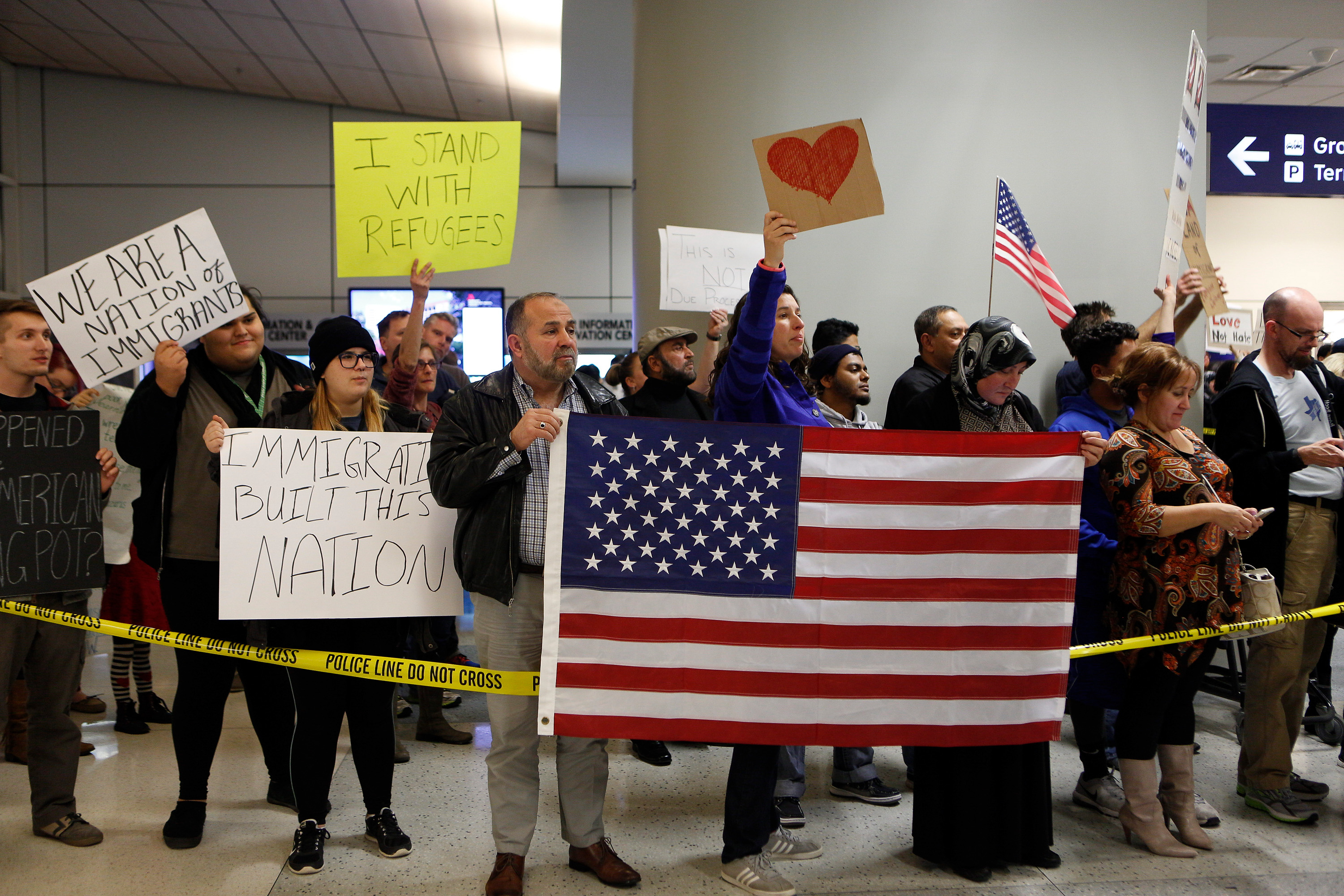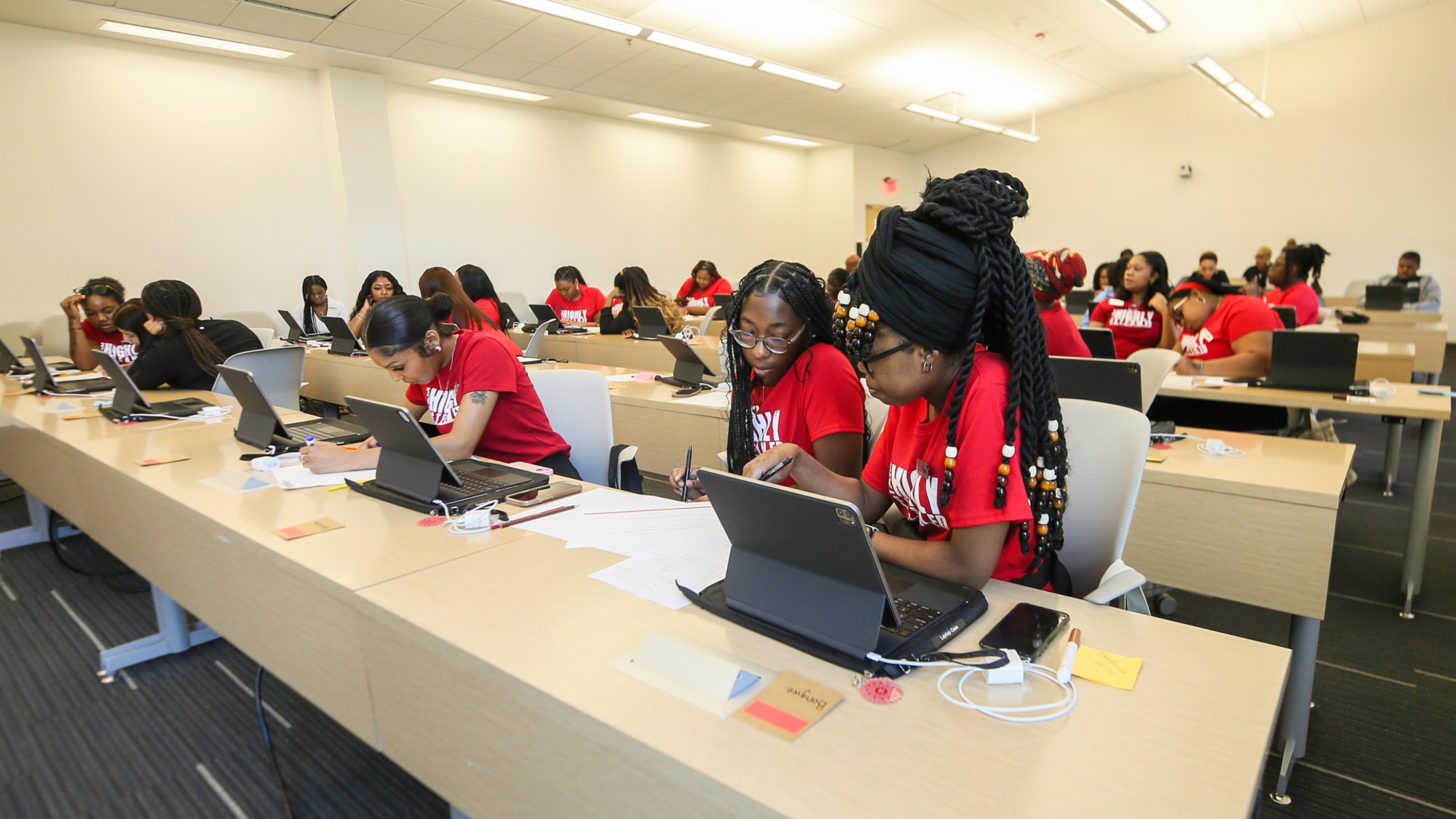President Trump's immigration order is a disgrace. But not for the reasons you think.
It lays the groundwork for a vicious betrayal of the nation's highest ideals and aspirations


President Trump's executive order banning nationals of seven majority-Muslim countries from entering the United States for the next 90 days is a moral travesty, but not for the reasons so many journalists, activists, and protesters appear to believe.
It isn't terrible because Jesus said to love the poor and the needy most of all. Or because a plaque at the Statute of Liberty displays a moving poem about huddled masses yearning to breathe free. Or because it's un-American to make hard decisions about who the country will accept as immigrants or refugees. The U.S. is not — and never has been — a Red Cross encampment on the edge of an active war zone with its doors held open indiscriminately to all comers.
In fact, no country can be described this way. All political communities have borders and distinguish between citizens, resident aliens, and noncitizens; all communities accept some outsiders and reject others. This has been true even for the United States, which through long stretches of its history has admitted large numbers of immigrants. It was certainly true during the just-completed presidency of Barack Obama.
The Week
Escape your echo chamber. Get the facts behind the news, plus analysis from multiple perspectives.

Sign up for The Week's Free Newsletters
From our morning news briefing to a weekly Good News Newsletter, get the best of The Week delivered directly to your inbox.
From our morning news briefing to a weekly Good News Newsletter, get the best of The Week delivered directly to your inbox.
No, this executive order is abhorrent because the United States does not face a serious threat from terrorists originating in the seven singled-out countries: Iran, Iraq, Syria, Libya, Somalia, Yemen, and Sudan. How do we know that? Because there have thus far been no fatal terrorist attacks committed by people from those countries. None. Not one. Which means that the executive order isn't justified. At all. Not because such an order is inherently unacceptable, but because it isn't necessary under the present circumstances.
If the United States faced a sufficiently elevated threat of terrorist attacks committed by nationals originating from these countries, the executive order might well be justified, and I might well support it. But it doesn't, and I don't.
In certain respects, the order transgresses bedrock American principles that should be considered inviolable, especially the original (now partially walked-back) inclusion in the ban of foreign nationals in possession of green cards. These are lawful permanent residents of the United States, not outsiders we may feel the need to exclude in a time of extreme national threat. They have already endured and come through an arduous, time-consuming vetting process run by U.S. Citizenship and Immigration Services. (One might even describe it as "extreme vetting.")
So, why insist on originally including lawful permanent residents in the ban (as senior White House staffers Steve Bannon and Stephen Miller apparently went out of their way to do)?
A free daily email with the biggest news stories of the day – and the best features from TheWeek.com
Leaving aside demagogic motives (which may well be at play), the inclusion of green card holders in the ban implies that even those who've been through this lengthy and rigorous screening are a threat to the nation. But if that's true, why wouldn't fully naturalized citizens who originated from those suspect countries also be considered a threat?
When that implication is combined with the President Trump's remarks about eventually giving preference to Christian refugees from the Middle East, what we appear to be left with is an order that lays the groundwork for something far more sweeping than a restriction on visas for foreigners from a select group of countries. We have the groundwork for treating American citizens who originated from those countries (or perhaps who just happen to be Muslim) as a uniquely threatening class of citizen — a class subject to special scrutiny, surveillance, and harassment. But of course, when a class of citizen is subject to special scrutiny, surveillance, and harassment, its members are no longer full citizens. They are second-class citizens, with more limited rights than all other, "normal" citizens.
To judge by the rabid reader comments attached to the article on Breitbart announcing the executive order, at least some of Trump's most passionate supporters crave precisely such an arrangement for Muslims in the United States.
Would it be un-American to relegate Muslim Americans to the category of second-class citizens? Given the long history of the U.S. treating certain classes of people as less than full citizens (African-Americans, Native Americans, Japanese Americans), it would be difficult to call such a move un-American, at least in purely empirical terms. But morally, it's a no-brainer: Treating Muslim Americans as second-class citizens would indisputably be a vicious betrayal of the nation's highest ideals and aspirations — a betrayal that the threat posed by radical Islam does not even remotely justify.
That's why the Trump administration's executive order is an outrage, and it cannot be allowed to stand.
Damon Linker is a senior correspondent at TheWeek.com. He is also a former contributing editor at The New Republic and the author of The Theocons and The Religious Test.
-
 Breaking news: the rise of ‘smash hit’ rage rooms
Breaking news: the rise of ‘smash hit’ rage roomsUnder the Radar Paying to vent your anger on furniture is all the rage but experts are sceptical
-
 Did markets’ ‘Sell America’ trade force Trump to TACO on Greenland?
Did markets’ ‘Sell America’ trade force Trump to TACO on Greenland?Today’s Big Question Investors navigate a suddenly uncertain global economy
-
 ‘We know how to make our educational system world-class again’
‘We know how to make our educational system world-class again’Instant Opinion Opinion, comment and editorials of the day
-
 The billionaires’ wealth tax: a catastrophe for California?
The billionaires’ wealth tax: a catastrophe for California?Talking Point Peter Thiel and Larry Page preparing to change state residency
-
 Bari Weiss’ ‘60 Minutes’ scandal is about more than one report
Bari Weiss’ ‘60 Minutes’ scandal is about more than one reportIN THE SPOTLIGHT By blocking an approved segment on a controversial prison holding US deportees in El Salvador, the editor-in-chief of CBS News has become the main story
-
 Has Zohran Mamdani shown the Democrats how to win again?
Has Zohran Mamdani shown the Democrats how to win again?Today’s Big Question New York City mayoral election touted as victory for left-wing populists but moderate centrist wins elsewhere present more complex path for Democratic Party
-
 Millions turn out for anti-Trump ‘No Kings’ rallies
Millions turn out for anti-Trump ‘No Kings’ ralliesSpeed Read An estimated 7 million people participated, 2 million more than at the first ‘No Kings’ protest in June
-
 Ghislaine Maxwell: angling for a Trump pardon
Ghislaine Maxwell: angling for a Trump pardonTalking Point Convicted sex trafficker's testimony could shed new light on president's links to Jeffrey Epstein
-
 The last words and final moments of 40 presidents
The last words and final moments of 40 presidentsThe Explainer Some are eloquent quotes worthy of the holders of the highest office in the nation, and others... aren't
-
 The JFK files: the truth at last?
The JFK files: the truth at last?In The Spotlight More than 64,000 previously classified documents relating the 1963 assassination of John F. Kennedy have been released by the Trump administration
-
 'Seriously, not literally': how should the world take Donald Trump?
'Seriously, not literally': how should the world take Donald Trump?Today's big question White House rhetoric and reality look likely to become increasingly blurred
